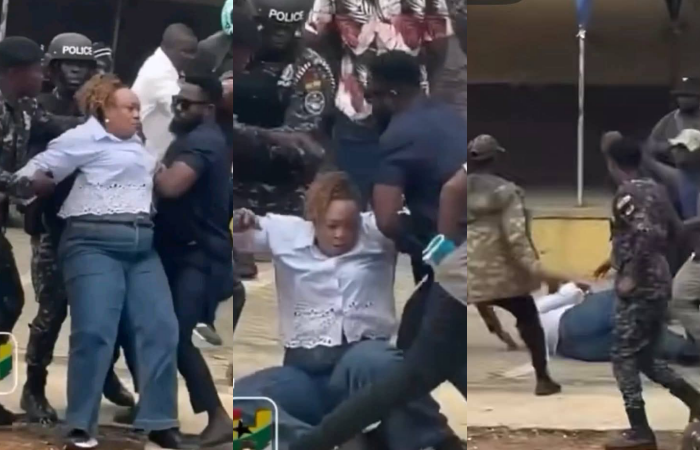Paragraph 1: The Incident and Charges
On July 11, 2025, during the Ablekuma North parliamentary re-run election in Accra, Ghana, a violent incident erupted involving then-Fisheries and Aquaculture Minister Mavis Hawa Koomson and two other members of the New Patriotic Party (NPP). Koomson, along with Chris Lloyd Nii Kwei, a Deputy Organiser of the NPP, and Majeed Mohammed Sanaa, a trader, were assaulted by a group of eight individuals at the Methodist Church Polling Station. The attack prompted swift action from security personnel present at the station, who intervened to protect the victims from further harm. Following the incident, the eight individuals involved were apprehended and subsequently charged with conspiracy to commit assault and three counts of assault.
Paragraph 2: The Accused and the Victims
The eight accused individuals, diverse in their occupations and residential locations, included Mohammed Abubakar, a private security man; Jijani Mahmud, a driver; Prince Dzakpasu, a businessman; Anas Mohammed, an estate developer; Mohammed Hamda, a mechanic; Darko Otibu Samuel, a businessman; Musah Muntari, a station manager; and Ali Saeed, also a businessman. Their residences spanned various areas within Accra, including Alajo, Mamobi, Newtown, Lapaz, Amasaman, Mallam Atta, and Fadama. The victims of the assault, all affiliated with the NPP, were Mavis Hawa Koomson, then a Member of Parliament for Awutu Senya East and Minister of State; Chris Lloyd Nii Kwei, a resident of Tema and a businessman in addition to his party role; and Majeed Mohammed Sanaa, a trader residing in Alajo.
Paragraph 3: Legal Proceedings and Bail
The case was brought before an Accra Circuit Court, presided over by Judge Isaac Addo. All eight accused individuals pleaded guilty to the charges brought against them. Judge Addo, however, deferred sentencing until August 29, 2025, granting the accused individuals bail in the interim. Each accused person was granted bail in the sum of GHS 80,000 with one surety. This decision allowed them to remain free pending the final sentencing hearing, subject to the conditions of their bail.
Paragraph 4: The Prosecution’s Case
Chief Inspector Jonas Lawer led the prosecution, presenting the details of the case to the court. The prosecution highlighted the political context of the incident, noting that the victims were all members of the ruling NPP and were present at the polling station as part of their election-related activities. The prosecution detailed the sequence of events, emphasizing the unprovoked nature of the assault on Mr. Sanaa, which occurred following the initial attack on Madam Koomson and Mr. Nii Kwei. The prosecution also presented evidence of the injuries sustained by the victims, who had been issued police medical forms and subsequently received treatment at a hospital.
Paragraph 5: The Defense and the Accused’s Statements
While the accused pleaded guilty to the charges in court, their initial statements following their arrest presented a different narrative. Upon apprehension, the accused individuals denied the allegations against them in their caution statements. This initial denial contrasts with their later admission of guilt in the courtroom. The reasons behind this change in plea are not elaborated upon in the provided information.
Paragraph 6: Significance and Aftermath
This case highlights the tensions that can arise during election periods and underscores the importance of maintaining peace and order during such crucial democratic processes. The assault on a government minister and other party members during an election re-run raises concerns about the safety and security of individuals involved in political activities. The court’s decision to defer sentencing allows time for a comprehensive assessment of the case and the determination of appropriate penalties. The outcome of the sentencing will be significant in setting a precedent and sending a message about the consequences of violence and intimidation during elections in Ghana. The fact that the accused initially denied the charges but later pleaded guilty adds another layer of complexity to the case and raises questions about the circumstances surrounding their change of plea.


